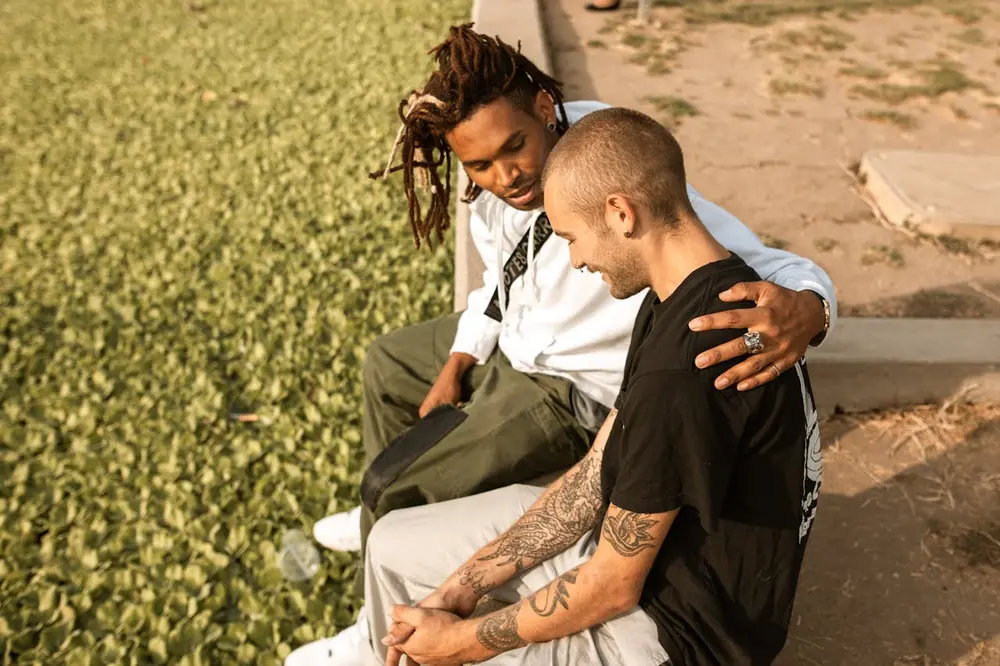Dear Men:
If you are here, it may be because you have experienced sexual assault, abuse, harassment, or some other form of domestic/sexual violence. If you are reading this, you may feel angry, guilty, sad, frightened, or confused. You may not know what to feel or if you are feeling at all. You may be flip-flopping between feeling like “it’s no big deal” to “it’s a really big deal”. You may have questions or concerns about the road ahead and picking up the pieces. That is okay. You have come to the right place.

- Rape or sexual assault
- very strong emotions, sometimes in waves, of anger, sadness, guilt, or frustration
- overreactivity, moodiness, irritability, or depression
- repeatedly changing how you understand or feel about your experiences
- a feeling of “fogginess” or distance from the world around you
- feeling like you are “losing yourself” or acting differently
- concerns about your masculinity, feelings that your masculinity has been taken from you
- thoughts about hurting or killing yourself
Does this experience make me less of a man?
No. You are a man because you identify as a man. No one can take that away from you.
How long will I feel the effects of this?
These experiences may last days or weeks, and may stay in the background for longer.
There is no specific timeframe for trauma, but it will get better with time.
Will this affect my sexual orientation?
No. There is no relationship between sexual orientation and trauma.
Will this affect my sexual preferences or behavior?
Many will experience a change in libido which will stabilize over time. Some others may find they do not want to engage in sexual behavior similar to the conditions of their experience, however others will find doing so as a way to take control of their survivorship. If you are unhappy or want to make changes to your sexual behavior, speaking to a therapist may help.
Who should I tell?
This is your experience. Who you decide to tell is entirely up to you. You don’t owe it to anybody to tell them.
Should I report to the Police/HR/Administration etc.?
There are benefits and drawbacks to both options, and only you can decide which to choose. Reporting often begins a long and difficult process that requires re-telling your experience to multiple people, however some feel validation or closure by seeing systems take action against their perpetrator.
What do I do now?
While your feelings are at their most intense, go easy on yourself. Begin by taking things hour-by-hour and then day-by-day until you can get back to normalcy. You can look at other pages on our site, or see below for other resources. If you have other questions about your experience, what to expect, reporting, or anything else, you can speak to a confidential advocate by calling the hotline.
Resources
1in6
- Offers 24/7 free and confidential online chat with a trained advocate through RAINN
- Offers weekly free and anonymous online chat support group with a counselor (times found online)
- A collection of male survivors stories, highlighting the impact of trauma (and intersection with male identity) and journeys to healing and wellness
- Answers to common questions male survivors might have and useful information on a multitude of topics related to survivor experiences and the effects of trauma
MaleSurvivor
- Offers 24/7 moderated community chat and forums about a multitude of topics, including LGBTQ+ survivors, current/former military, for allies, and more.
- Offers a safe forum and community where men can share their experiences
- Lists practitioners who work with male survivors (none in AK, however)
- Organizes and hosts training and conferences about trauma and healing
- Offers resources for parents of male survivors and intimate partners of male survivors
Jim Hopper’s Website
- Offers information about male experiences and recommended next steps
- Information for friends, family, and allies
- Provides clinical consultation upon request, details available online

907 452 2293
Local Hotline

800 478 7273
Toll Free
Safe Exit

